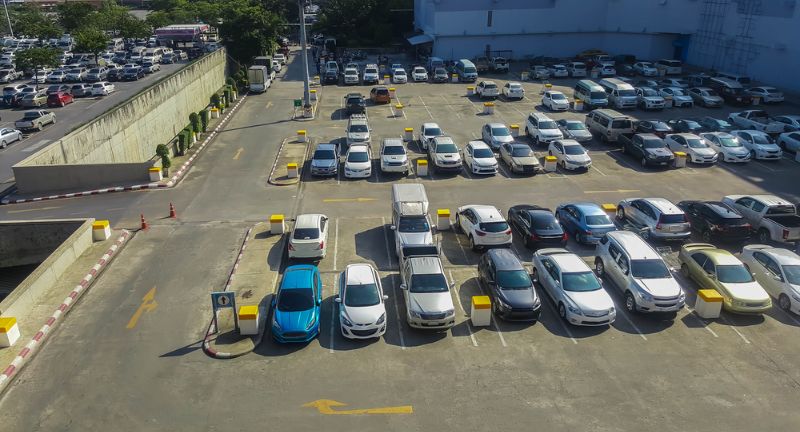NEWS
Millennial Meltdown: The Surging Crisis of Car Repossessions
Published
1 year agoon

Shutterstock
In the shadow of a looming financial predicament, millennials are facing an unprecedented wave of car repossessions, signaling a distressing trend in the auto finance sector. Surging interest rates and climbing vehicle prices have cornered young Americans into a cycle of debt and default, far exceeding historical norms. This crisis not only highlights the economic fragility of a generation but also calls into question the sustainability of current auto financing models.
Surging Auto Loan Defaults

Shutterstock
Millennials and Gen Z are increasingly falling behind on car loan payments, with default rates soaring due to financial pressures such as inflation and high vehicle costs.
Repossession Procedures

Shutterstock
When loan defaults occur, lenders have the right to repossess vehicles. Borrowers are notified and given a chance to catch up on payments, but failure to do so leads to repossession and potential additional financial burdens if the car sells for less than the outstanding loan balance.
Financial Strains on Younger Generations

Shutterstock
The financial landscape for millennials and Gen Z has been tough, marked by the pandemic, inflation, and geopolitical tensions. These challenges, coupled with higher vehicle costs, contribute to the growing problem of auto loan defaults.
Record-High Auto Costs

Shutterstock
The cost of new cars has reached near all-time highs, with the average price of a new car now significantly above what it was just a year ago. This increase in vehicle costs is part of why auto loan defaults are rising.
Rising Auto Loan Rates

Shutterstock
Interest rates for auto loans have hit a two-decade high, with new car interest rates averaging around 10%, making financing a car significantly more expensive than in the past.
Aggressive Borrowing Trends

Shutterstock
Since the COVID-19 pandemic, younger Americans have taken on more vehicle-related debt, with significant growth in outstanding car loans among those under 40 years of age.
Delinquency and Repossessions on the Rise

Shutterstock
The rate of vehicle repossessions has surged, indicating a broader trend of financial distress among car owners, particularly affecting millennials and Gen Z.
High Interest Rates Impact

Shutterstock
Subprime and deep subprime borrowers face the highest interest rates, exacerbating the financial burden and increasing the risk of repossession for those with lower credit scores.
Shifting Financing Trends

Shutterstock
Captive financing is gaining market share as buyers seek the best rates from manufacturers’ financial services, although fewer buyers are financing their cars due to high borrowing costs.
The Burden of Loan Payments

Shutterstock
For some younger individuals, car payments have become their highest expense, surpassing even rent, which adds to the financial strain and risk of default.
Affordability Crisis

Shutterstock
The affordability of vehicles has hit a record low, with the average new vehicle now requiring a significant portion of the median income, making it harder for younger buyers to afford cars.
Credit Challenges

Shutterstock
Lower average credit scores among millennials and Gen Z make it difficult to secure favorable auto loans, contributing to higher default rates.
Impact of Financial Environment

Shutterstock
Today’s financial environment, marked by inflation and increased living costs, is particularly challenging for younger borrowers, making it harder to keep up with auto loan payments.
Solutions and Strategies

Shutterstock
Addressing the auto loan crisis requires a multifaceted approach, including better financial planning, increased awareness of financing options, and perhaps regulatory changes to ensure fair lending practices and support for those struggling with debt.
Conclusion

Shutterstock
As the dust settles on the surging trend of car repossessions among millennials, it’s clear that a reevaluation of auto financing practices is imperative. The current trajectory underscores the need for more resilient financial literacy programs and flexible loan options to prevent further economic strain on younger generations. Moving forward, a concerted effort from lenders, policymakers, and consumers themselves will be crucial in steering away from the brink of a full-blown auto loan crisis.
More From Local News X
-


20 Everyday Things People Think Are Safe, But Are Actually…
-


Convicted Murderer Alex Murdaugh Loses Prison Phone Privileges After Speaking…
-


Victory Brinker Sings at Advocacy for the Arts Press Conference…
-


21 Surprising Drawbacks of Wealth Most People Don’t Realize
-


MORE: Fire Erupts Near Griffith Observatory in Los Angeles, CA
-


20 Important Tips About Your 401k Everyone Should Know
-


Traffic in New Orleans, LA Has Left Local In Dissaray
-


20 Signs You’re In Fantastic Shape After 50
-


20 of the Best Grocery Stores in 2025
-


Interview with Grandfather of Uvalde, TX Gunman, “I wasnt inside…
-


21 Things Retirees Should Never Buy At The Grocery Store
-


The 20 Unhealthiest Foods In America Today
